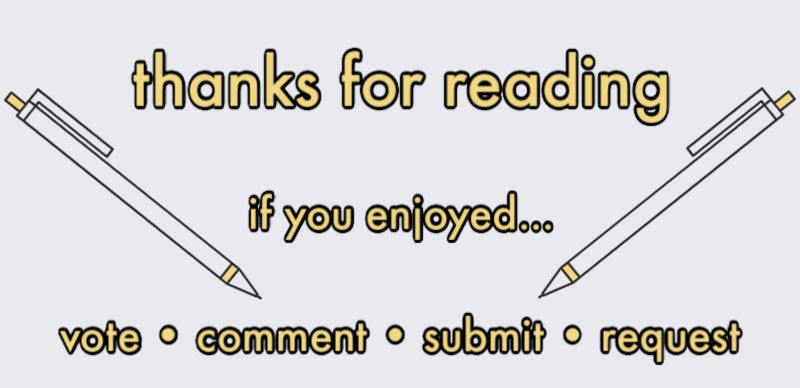Tip #27: Increasing Conflict
Author: Novel_Worm
Requester: JoyeEverett715
Category: Writing Tips

Conflict is the necessary part of any story. It is the driving force behind the plot and without conflict, we cannot have the story itself. Conflict, in its basic form, is an obstacle. What is the character's goal? What is keeping them from that goal? The interaction of these two is your conflict. Conflict can be both overarching book conflict or a scene-by-scene conflict. It can also be external or internal. When we talk about conflict, it usually needs to be a healthy balance of these. Every scene needs to have some conflict, just like every character needs to have some internal conflict as well as external conflict.
When we talk about increasing conflict, we need to increase the stakes of the situation. Before we can do that, we must examine the situation and identify the key elements. Then we will talk about increasing conflict. Feel free to apply this to both the plot in general or a particular scene. Let us construct a story based on this together.
Conflict
1. Who? What? Why : Main Player
Identify who the main player is. What is the main player's objective? Why do they want to achieve that objective? What does achieving the goal mean to them and why? Let's name our main player Grace. Grace wants to get into Harvard because that's where her dead best friend wanted to go with her. Now she wants to honor her friend's wish when she used to laugh it off before.
2. How? What? Why? : Obstacle
Figure out how the main player, who may or may not be our protagonist, is going to achieve that goal, what the obstacles standing in their way are, and why they're standing in the way. What is the goal of the obstacle, if it's a person? What is the emotional turmoil they're facing? What are the physical problems standing in their way? In our story, Grace is guilty because she used to laugh her friend's wish off and now the guilt is what's making her want to go to Harvard. Physical conflict is that she hasn't been preparing for this, unlike other applicants, and she has grades too low to get into a college of that prestige.
3. Now what? How? Why? : Reaction
How will the main player react to the obstacle? What will the obstacle make them do? Grace, for instance, debates giving up. She figures she'll get over the guilt someday, but she doesn't want to put in the hard work she knows she must. But she watches the funeral's recording once more and remembers how moved she was when she vowed to fulfill her friend's wish. So she decides to put in that work.
Now that we have the main player, the conflict and the reaction, let's see how we can make this more impactful.
Heightening Conflict
1. Place a time limit:
Often, limiting the time that the main player has to complete the task / overcome the obstacle can heighten the stakes of the situation. The player now has to finish a task within the time limit or the cause of the conflict wins / they fail at their goal. So in our story, Grace is already in senior year, and she knows she has to work very hard if she wants to go to Harvard.
2. Limit the space:
In a story with antagonists, the stakes don't feel real until we meet the villain. Having a situation where the antagonist and the protagonist don't meet seems very low-stakes. Force meetings, unless the antagonist hasn't been revealed. Limit the space of them both so that they're forced to meet. In stories without antagonists, try to make the stakes real by having the main player see some physical embodiments or symbols of their goal/obstacle. For instance, Grace talks to the counsellor at her high-school and this makes her obstacles seem much more real. She wonders how she is ever going to succeed.
3. Reduce the options:
Make sure the main player has very few options to achieve their goal. This will ensure that the stakes of the story heighten and that there is more conflict because these paths are all bound to be difficult and they must choose which path to undertake. This also makes the story feel real in the readers' eyes. With Grace, this means she has to work very hard and earn as many extra credits as she can.
For the whole story, feel free to add all of these options to the story. If it's one scene, please try not to use more than one of these techniques, because you risk making the stakes too high and at times, seem impossible. [You DO NOT want to make the stakes seem impossible, because then you risk losing realism and the story being equated to a legend. That's fine if it's your intention, though.]
Practice
Now, for an exercise, heighten the stakes of this story:
Lisa, a senator's daughter, has to hide the alien in her attic, Monroe, lest her parents find him and kill him.
Answer here and tag @Novel_Worm:

Here's my version of heightened stakes:
The aliens arrive to destroy earth next week, and Lisa has to find a way to make peace, without revealing Monroe. But what can a 12-year-old do?
Let me know if you have any questions. I'd also suggest checking out Tip #7 in this book for more on conflict, because Laine and Aria are more of the experts on this topic than me.
Happy writing!

Want to submit your own Tip?
Comment in this book and email your entry to [email protected]. We'll review it, and if we think it's well-written and helpful to the Wattpad community, we'll post it! Your entry may be something you have written previously, even if it is published elsewhere. (=
Have a Request?
Comment on the first chapter with the topic you'd like to see. Your suggestion might just turn into an article!

Bạn đang đọc truyện trên: AzTruyen.Top